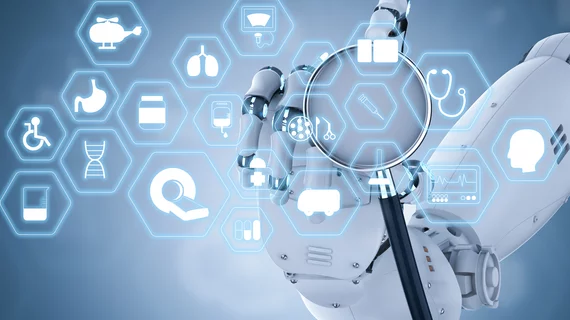AI interprets chest x-rays, prioritizes critical findings
Researchers have trained an artificial intelligence (AI) system to prioritize chest x-rays containing critical findings, according to a new study published in Radiology.
Significant x-ray backlogs are a problem in the U.K., one the authors hoped they could address by using AI. For the study, they used more than 470,000 adult chest x-rays to develop an AI system that identifies key findings. Natural language processing (NLP), used to extract certain phrases, played a key role in the team’s efforts.
“The NLP goes well beyond pattern matching,” co-author Giovanni Montana, PhD, of the University of Warwick in Coventry, England, said in a prepared statement. “It uses AI techniques to infer the structure of each written sentence; for instance, it identifies the presence of clinical findings and body locations and their relationships. The development of the NLP system for labeling chest x-rays at scale was a critical milestone in our study.”
Montana and colleagues tested their new system’s performance on more than 15,000 other images and found that it could distinguish x-rays with crucial findings “with high accuracy.” While it was taking more than 11 days for critical findings to be read by a radiologist before, the team’s simulations found that it took just 2.7 days using the AI system.
“The initial results reported here are exciting as they demonstrate that an AI system can be successfully trained using a very large database of routinely acquired radiologic data,” Montana said in the same statement. “With further clinical validation, this technology is expected to reduce a radiologist's workload by a significant amount by detecting all the normal exams so more time can be spent on those requiring more attention.”

